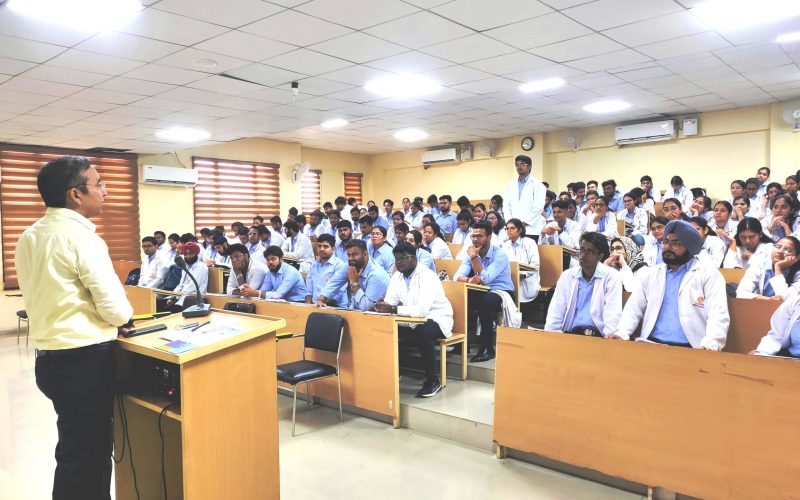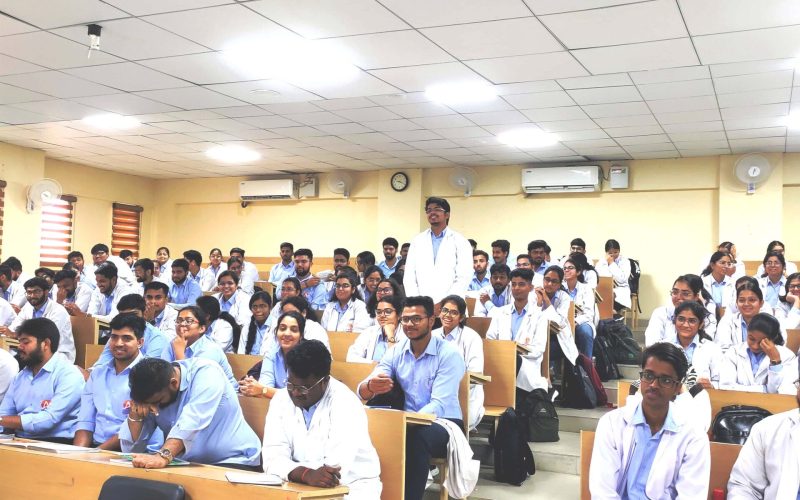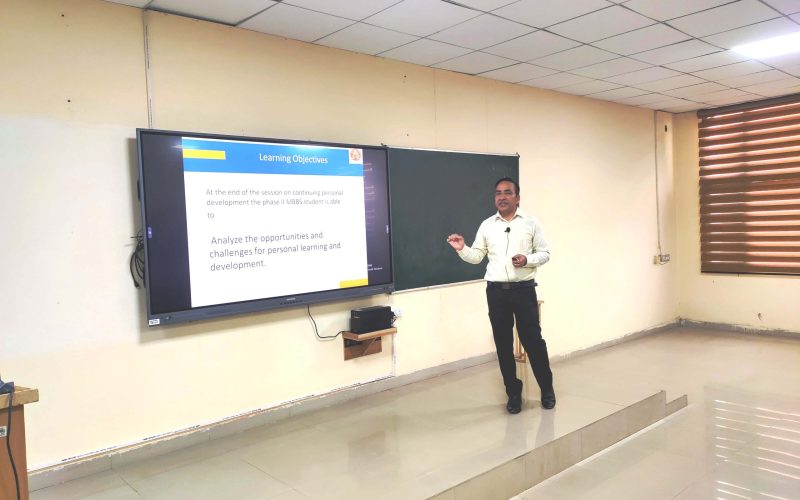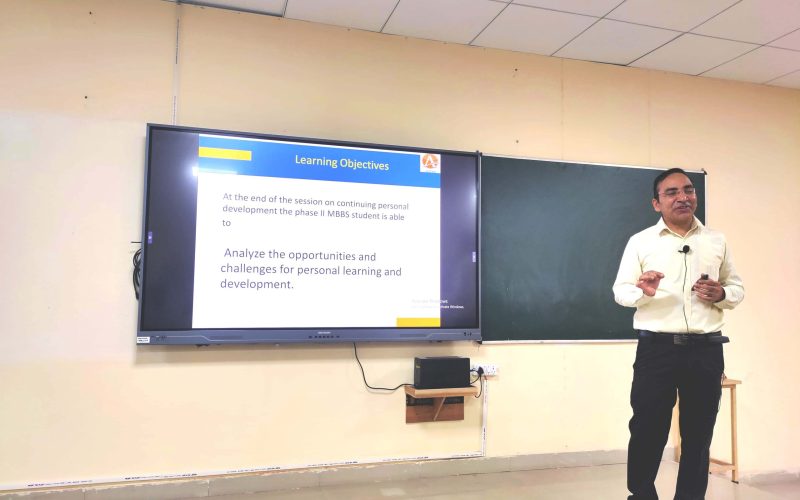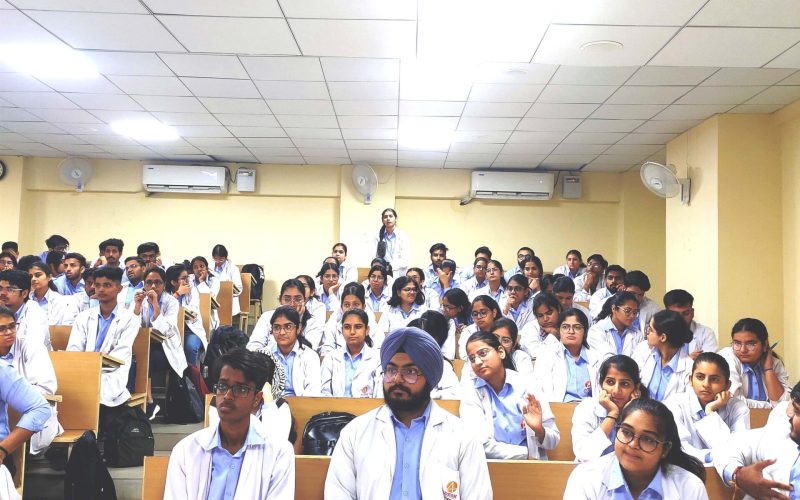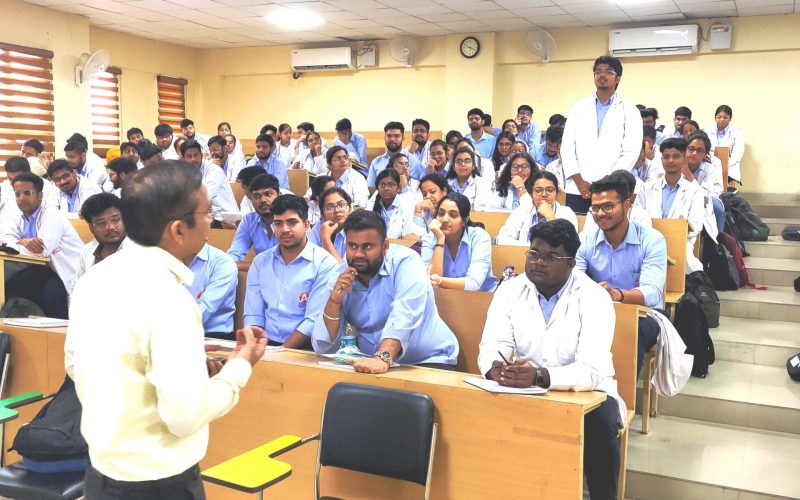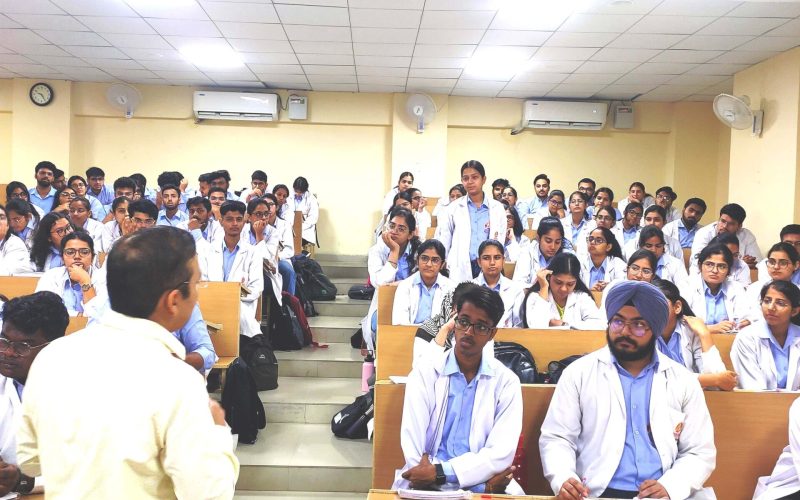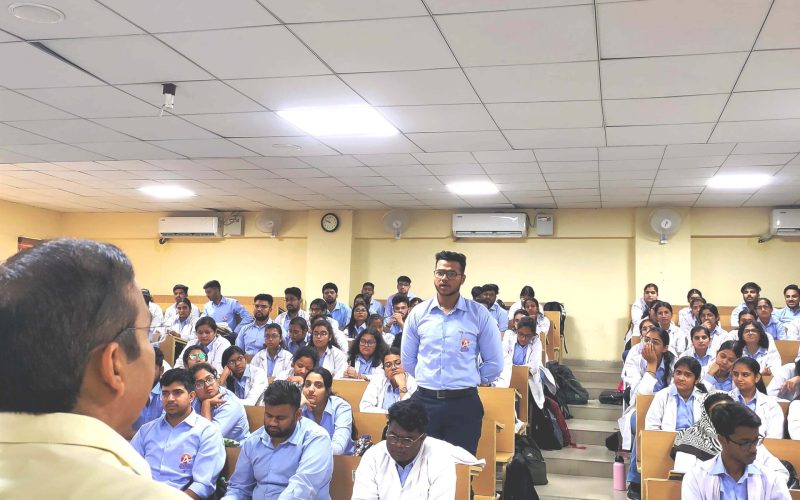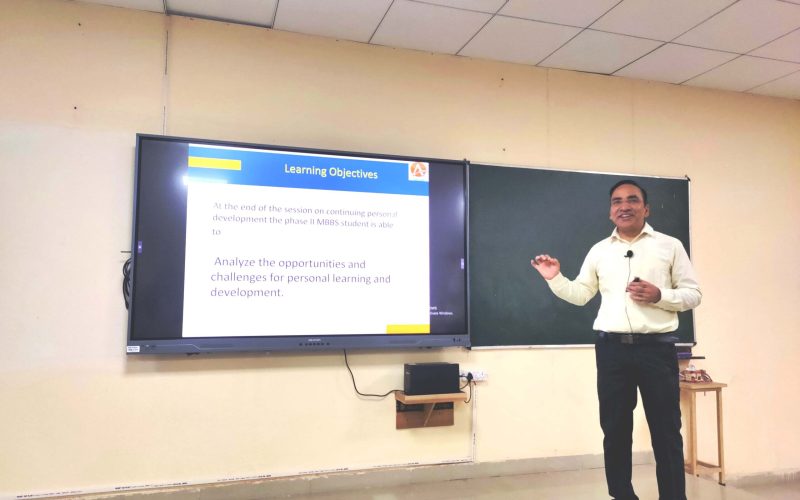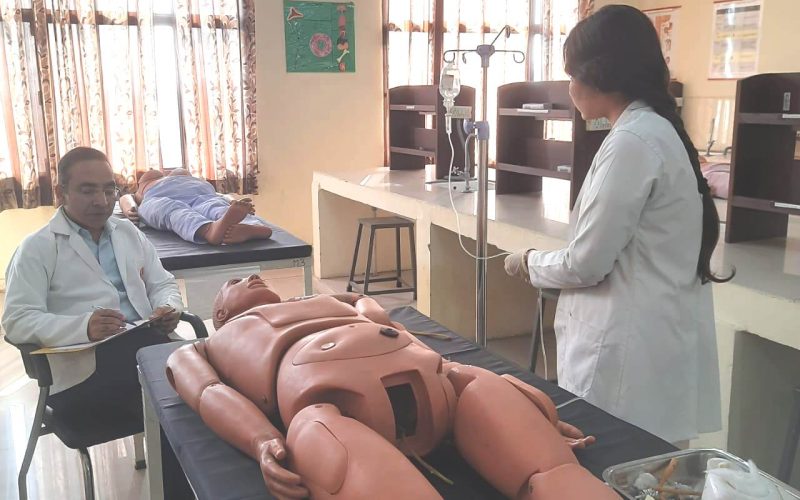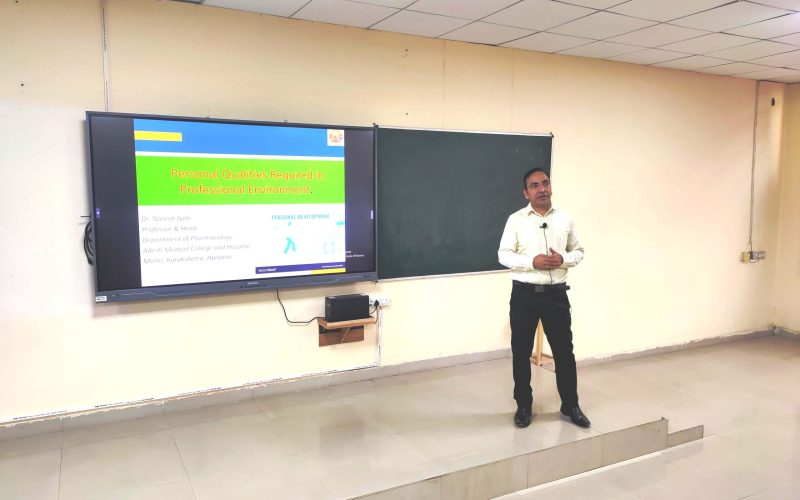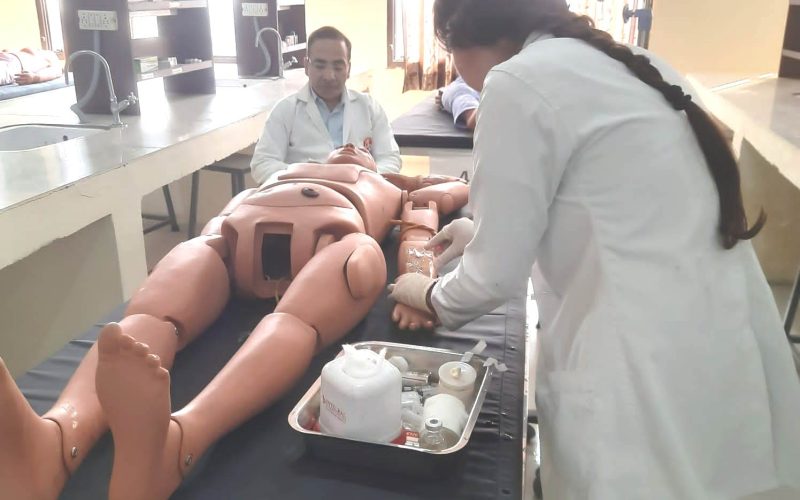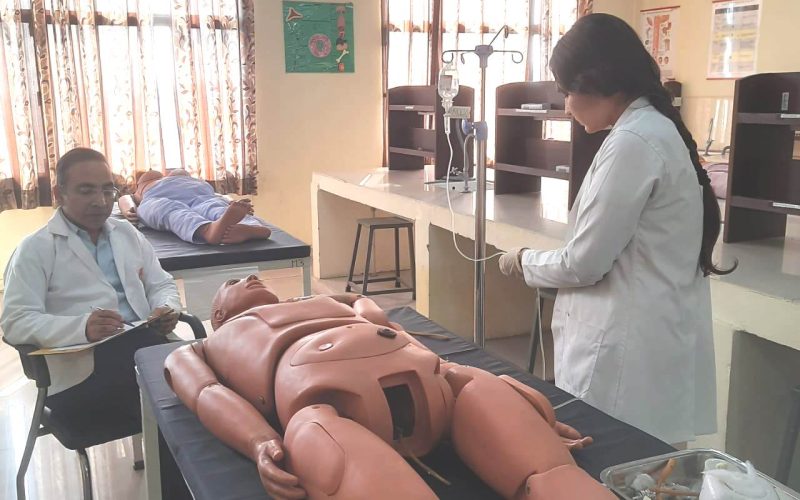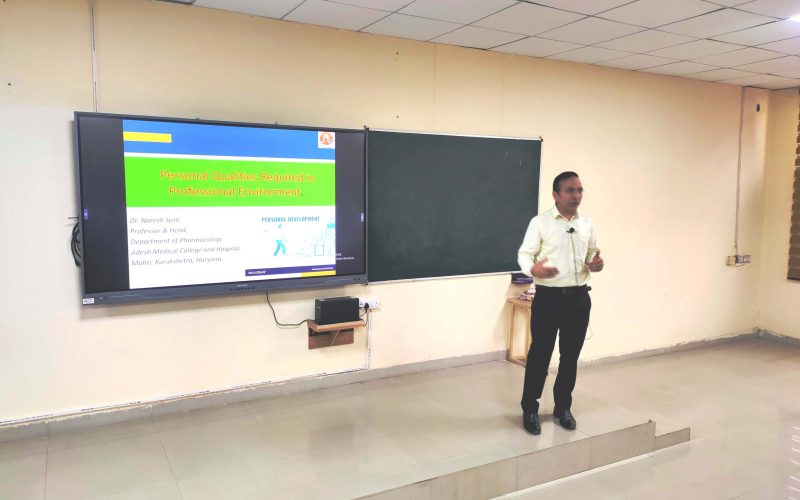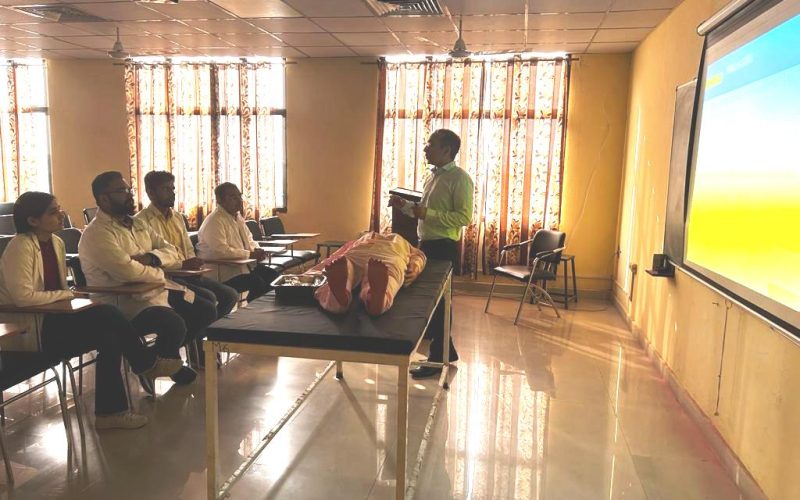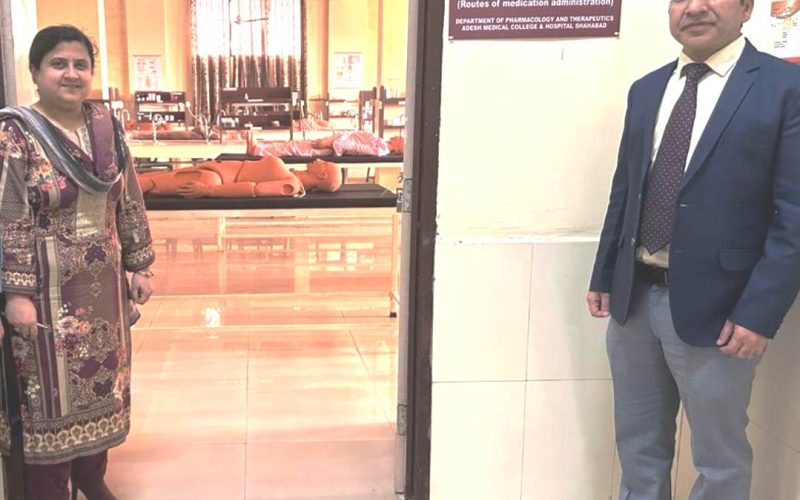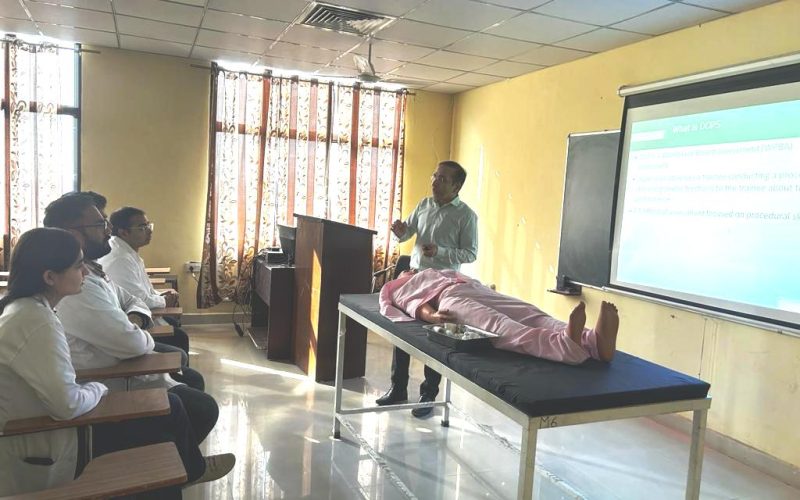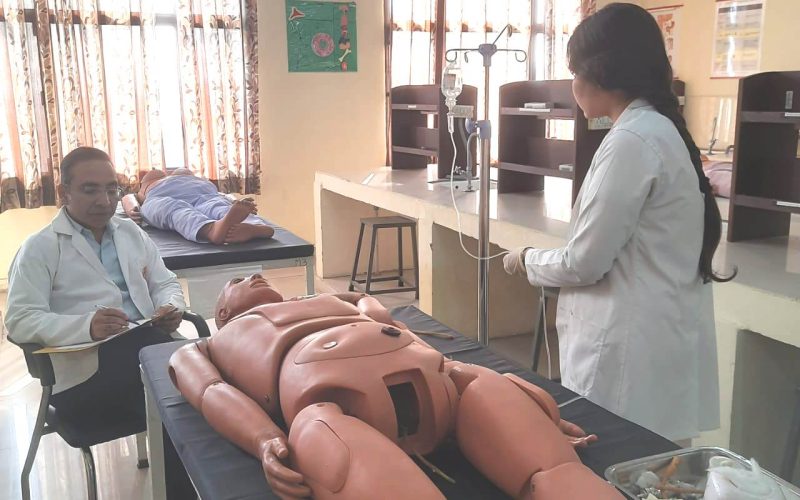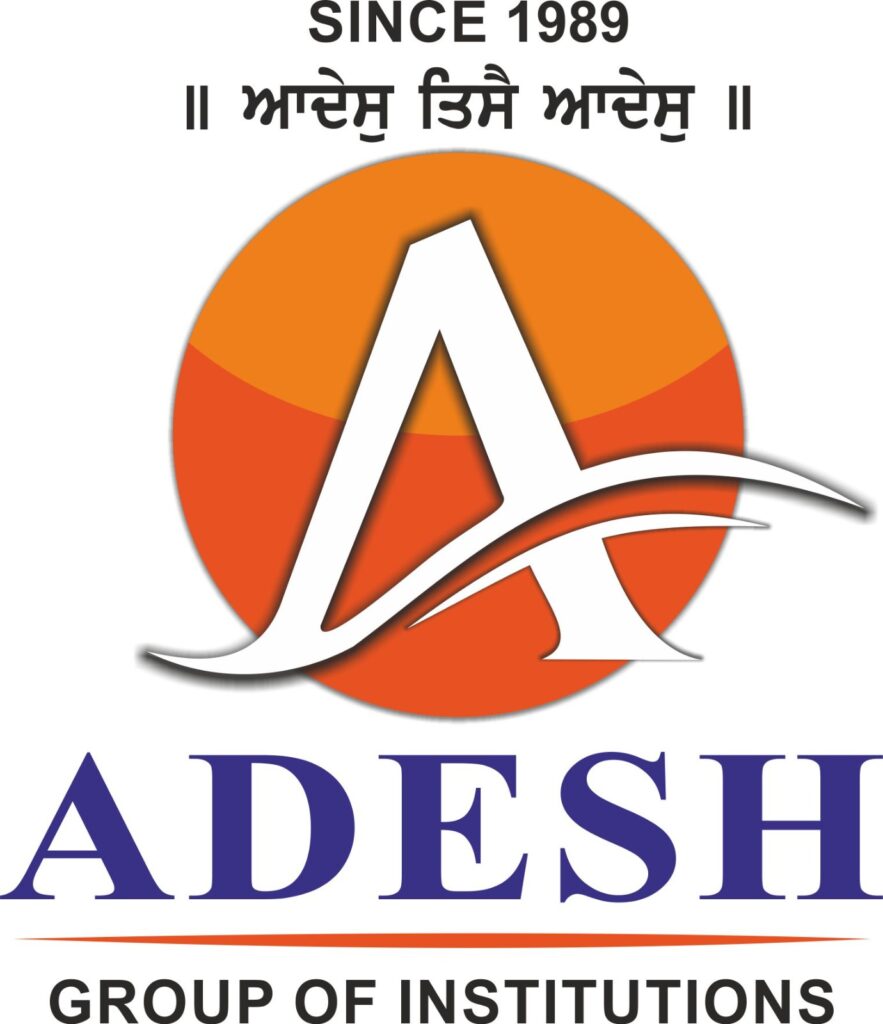Pharmacology
 | Dr. Naresh JyotiPro. & HOD |
Dr. Naresh Jyoti, Prof & Head of Department, is MBBS (1999) & MD Pharmacology (2006) from Govt. Medical College, Amritsar. He is also working as Deputy Medical Superintendent (DMS) in the Adesh Hospital College and Hospital.
The department of Pharmacology at AMCH is involved in teaching pharmacology and therapeutics to undergraduate students.
A pharmacology department is an academic department within a university or a department within a research institution that focuses on the study of drugs, their actions, and their effects on living organisms. Pharmacology is a multidisciplinary field that combines principles from various disciplines, including biology, chemistry, physiology, and medicine. The primary activities of a pharmacology department include:
1. Education and Training: Pharmacology departments offer undergraduate and graduate programs in pharmacology or related fields. These programs provide students with a comprehensive understanding of drug actions, mechanisms of action, pharmacokinetics (absorption, distribution, metabolism, and excretion of drugs), and pharmacodynamics (how drugs interact with target molecules in the body). The department offers courses, seminars, and practical training to equip students with the knowledge and skills needed for careers in academia, research, healthcare, or industry.
2. Research: Pharmacology departments are involved in cutting-edge research to advance the understanding of drug interactions with biological systems and develop new therapeutic interventions. Researchers within the department investigate drug discovery and development, drug safety and efficacy, pharmacogenomics (how genetic variations influence drug responses), and pharmacokinetic/pharmacodynamic modeling. They may study the effects of drugs on specific organs, systems, or diseases, and explore mechanisms of drug action at the molecular and cellular levels.
3. Drug Development and Testing: Pharmacology departments contribute to the development and testing of new drugs. Researchers conduct preclinical studies to evaluate the safety and efficacy of potential drug candidates in laboratory models and animal experiments. They investigate drug metabolism, toxicology, and drug interactions to ensure the safety and effectiveness of drugs before they proceed to clinical trials.
4. Clinical Pharmacology: Some pharmacology departments have a focus on clinical pharmacology, which involves the study of drugs in humans. Clinical pharmacologists evaluate the effects of drugs in patient populations, analyze drug-drug interactions, optimize drug dosing regimens, and contribute to personalized medicine approaches. They may also be involved in pharmacovigilance, monitoring adverse drug reactions, and providing expertise in drug use and optimization in clinical practice.
5. Pharmacokinetics and Pharmacodynamics: Pharmacology departments study the pharmacokinetics and pharmacodynamics of drugs, which involve understanding how drugs are absorbed, distributed, metabolized, and excreted in the body, as well as how drugs interact with their target molecules and produce therapeutic effects. This knowledge helps in optimizing drug dosing, predicting drug interactions, and understanding individual variations in drug responses.
6. Collaboration and Interdisciplinary Research: Pharmacology departments collaborate with other departments and research institutions to conduct interdisciplinary research. They may work closely with medicinal chemists, biologists, clinicians, and other healthcare professionals to address complex research questions, develop novel therapies, and translate research findings into clinical applications.
7. Drug Safety and Regulatory Affairs: Pharmacology departments contribute to drug safety and regulatory affairs by studying drug toxicity, identifying potential adverse effects, and evaluating drug safety profiles. They may also contribute to regulatory processes, such as providing scientific expertise for drug approvals, assessing drug risks and benefits, and contributing to drug labeling and safety monitoring.
The ongoing research projects in the department of pharmacology are:
i. Impact of training on healthcare professionals’ knowledge and practice of Pharmacovigilance at a tertiary care hospital.
ii. Development and introduction of a module on Research Methodology as faculty development program.
iii. Drug utilization pattern in OPD patients of Orthopaedics Department at a tertiary care teaching hospital in North India.
iv. Introduction of communication skills module for teaching phase II medical students.
v. To determine the effectiveness of Dhyan Yog in reducing the mental stress and improving overall well-being.
| Facilities | |
|---|---|
| 1. | State-of-the-art laboratories |
| 2. | Demonstration room |
| 3. | Museum |
| 4. | Library |
| 5. | Animal house |
| 6. | ADR monitoring centre |
A. CAL lab (Computer aided learning) Laboratory:
The lab has 15 computers, along with broadband internet connections along with AV aids (Multimedia Projector and Screen), to demonstrate the effect of drugs on various animal models using online and offline software. The experimental work on animals is demonstrated by online software “Medimation” and offline software like ExPharm (Version T1_0). The UG students are taught the experiments using videos, models and charts.
The undergraduate students have access to the National Essential Drug Lists (NLEM), Standard Treatment Guidelines, Banned Drugs List of the CDSCO, PvPI, WHO, Price Controlled Drugs List, Antibiotic Guidelines, Hospital formulary, adverse drug reactions, and other resource material. The students can use these materials for learning the
principles of rational prescribing.
B. Clinical Pharmacology and Pharmacy Laboratory
The laboratory includes 15 mannequins to teach students and demonstrate various parenteral routes. The students are taught to perform the drug administration techniques on the mannequins. The clinical pharmacology equipment like treadmill,
master’s two step-apparatus, pupilometer, sphygmomanometers. The laboratory also
has charts and models illustrate the pharmacodynamic and pharmacokinetic properties
of drugs.
C. Research Laboratory:
The research laboratory is equipped with spectrophotometer, critical flicker fusion
apparatus, Cook’s climbing pole etc.
D. Experimental Pharmacology Laboratory
The experimental laboratory has all the equipment like physiographs, student organ baths, kymographs and other equipment.
E. Central Animal House
Animal house is maintained by the department of Pharmacology as per CCSEA guidelines. The animal house with registration number is 1928/PO/Re/16/CPCSEA, is fully equipped with all facilities for animal handling and research. There are separate isolation rooms and fully equipped operation theatre for any experimental procedures
on animals.
F. Departmental library-cum-seminar room:
Library has more than 115 important books and 5 journals (national & international) related to pharmacology.
G. Museum:
Museum houses more than 150 drugs in the form of fully labeled specimens, catalogues and models. Our museum has two separate sections, one for herbal drugs, where more than 100 herbal drugs have been displayed in the form of specimens or charts. The
other section is depicting “History of Medicine”, in the form of charts.
H. AMC centre (ADR Monitoring Centre)
Our department is a designated ADR (Adverse drug monitoring) monitoring Centre since April 2022, which is involved in pharmacovigilance activities. This centre regularly reports and analyzes any adverse event occurring in or around the hospital and sends the information to IPC, Ghaziabad through Vigilfow. This centre also sends various
communications to all medical faculty and residents about updates on drug information. The department also conducts regular trainings and workshops to train all faculty, residents and paramedical staff to observe and report adverse effects in patients.
Photo Gallery
